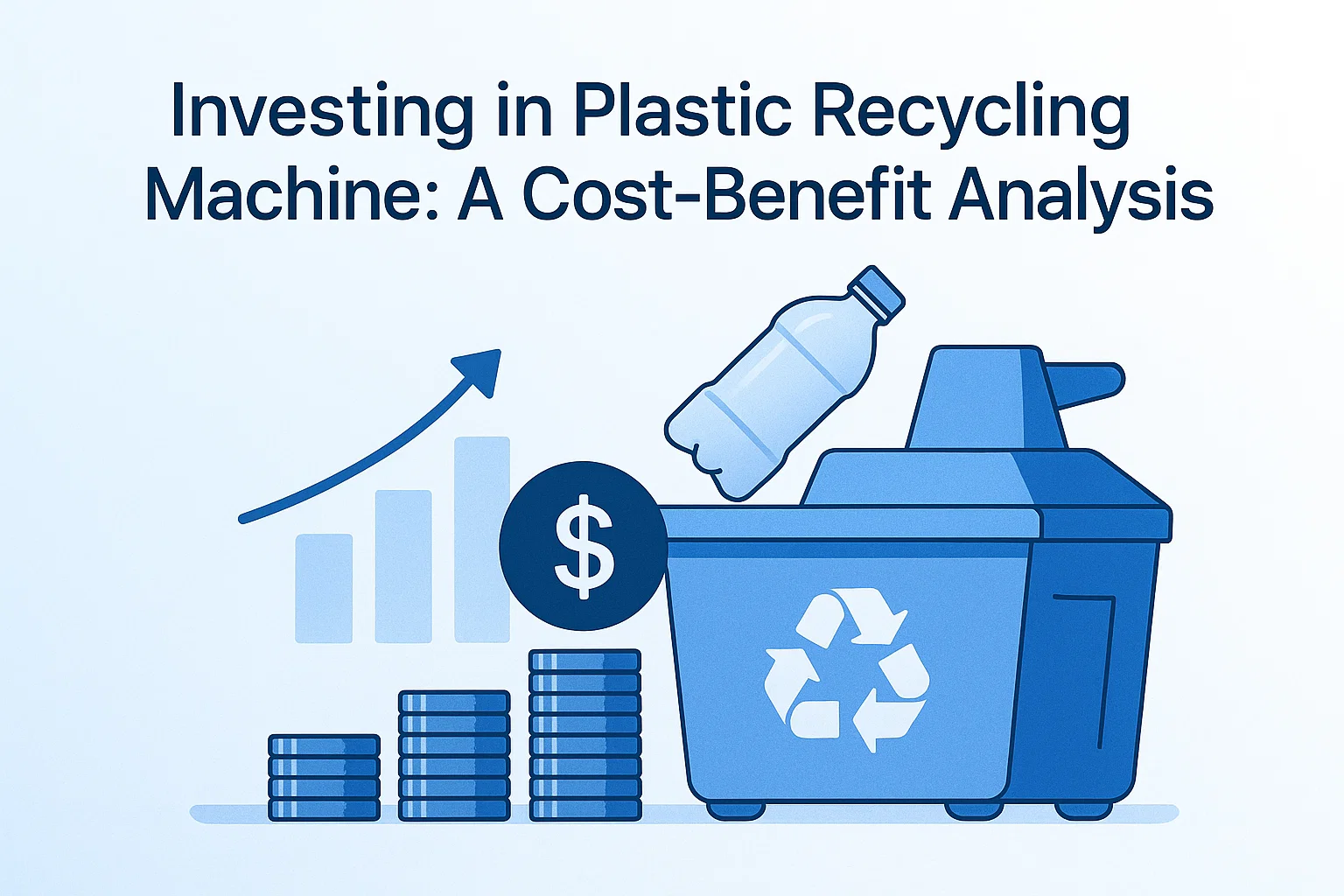In today’s competitive and eco-conscious market, both businesses and forward-thinking individuals are seeking solutions that combine profitability with environmental responsibility. As sustainability targets become more urgent, investing in advanced plastic recycling machines has proven to be a smart move. But how do you weigh the plastic recycling machine price against the financial and ecological returns? This comprehensive guide from Energycle outlines the key factors in making an informed investment decision.
The Financial Perspective: Understanding Costs and Returns
Initial Investment and Operational Costs
The upfront plastic recycling machine price depends on several variables—capacity, technology, automation level, and brand reputation. Entry-level machines can start at just a few thousand dollars, while large-scale, automated Energycle systems may require a higher initial investment but deliver industry-leading efficiency and reliability.
Ongoing operational expenses include maintenance, labor, spare parts, and energy consumption. Energycle’s machines are engineered for maximum uptime and feature energy-saving technologies, significantly lowering lifetime costs compared to generic models.
Revenue Streams and Cost Savings
- Sell recycled plastic: High-quality flakes or pellets are in strong demand from manufacturers.
- Reduce raw material expenses: Reuse recycled output within your own production line.
- Lower waste disposal fees: Processing plastic waste onsite minimizes landfill and hauling costs.
Many Energycle clients find that, with a steady supply of plastic waste, their machine pays for itself within 1–2 years.
Government Incentives and Grants
In the EU, US, and worldwide, governments are supporting recycling innovation with grants, low-interest loans, and tax credits. These incentives can substantially reduce your net investment. The Energycle team will help you identify and apply for available funding opportunities in your region.
The Environmental Impact: More Than Just Numbers
Significant Waste Reduction
Plastic recycling machines from Energycle help drastically reduce the amount of plastic ending up in landfills or oceans. Every ton recycled means less environmental damage and a direct contribution to global sustainability goals.
Conservation of Resources and Energy
Producing new plastic from raw petroleum is energy-intensive and depletes non-renewable resources. Recycling plastics saves up to 88% of the energy required for virgin production—a benefit that directly supports your company’s carbon reduction goals.
How to Decide if a Plastic Recycling Machine Is Right for You:
Consider your available waste volume, operational costs, and access to government support. Request a personalized ROI analysis from Energycle to understand your specific benefits and payback time.
Conclusion
In the transition to a circular economy, investing in a plastic recycling machine is not just viable—it’s essential for companies that value both profit and purpose. By choosing Energycle, you ensure industry-leading technology, reliable support, and a partner dedicated to your success.
Ready to calculate your savings and sustainability gains? Discover Energycle’s plastic recycling machines or request a customized quote today. Your profitable, eco-friendly future starts here.
Frequently Asked Questions
- What affects the price of a plastic recycling machine?
- Capacity, automation, technology, and brand reputation are the main factors.
- Can a plastic recycling machine investment be profitable?
- Yes. With the right volume and market, many clients achieve payback within two years.
- Are there subsidies or grants available?
- Many regions offer financial support for recycling investments. Energycle can assist you in finding options.
- What are the main environmental benefits?
- You’ll reduce landfill waste, cut energy use, and support circular resource use—all with measurable impact.
- What should I evaluate before buying?
- Analyze your waste volume, required capacity, operational costs, regulations, and available government support.


